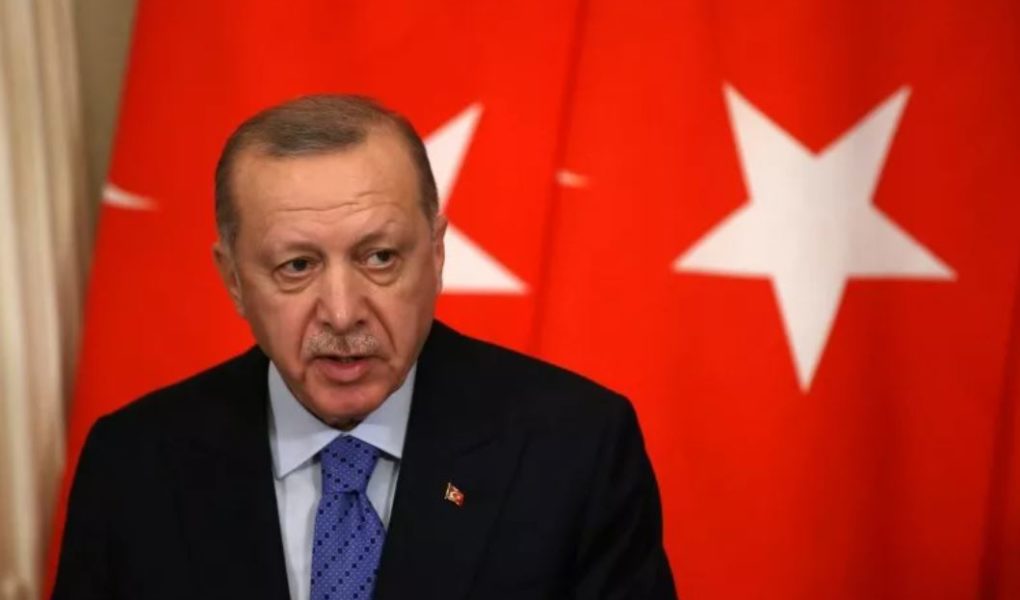Most of the headlines about COVID-19’s global upheaval focus on how adversaries like China have begun acting more belligerently against U.S. interests. But increasingly, Turkey, formally a NATO ally, is also taking advantage of the pandemic to expand its influence in very destabilizing ways across the Eastern Mediterranean, an area of growing importance to the United States.
Washington’s own lack of focus on the region helped invite Ankara’s aggressiveness, which in turn is increasing tensions at the heart of the transatlantic alliance, undermining America’s ability to promote peaceful energy development and worsening the civil war in Libya.
A new report released today from the Eastern Mediterranean Policy Project at the Jewish Institute for National Security of America (JINSA), which we co-chair, illustrates the troubling effects of Turkey’s actions amid COVID-19 and how things could go from bad to worse with further U.S. inaction.
Certainly, Turkey was becoming steadily more assertive in the years prior to the pandemic. President Recep Tayyip Erdoğan’s embrace of an interventionist, Islamic-tinged nationalism led to confrontations with almost every other country in the Eastern Mediterranean—in particular, over Libya and exploring the region’s potentially massive undersea natural gas deposits. Driven largely in reaction to Turkish policy, even before coronavirus many U.S. partners in the Middle East and southern Europe—including NATO allies France and Greece—began developing closer defense and energy ties among themselves.
And while COVID-19 thus far has impacted the region less than other global hotspots, its economic effects are hitting the energy sector especially hard. This is delaying further exploration by American and other Western companies, as well as damaging prospects for a major U.S.-backed pipeline project to send gas from Cyprus and Israel to Europe. Turkey’s economy, which only began emerging from recession last year, appears especially stressed by the pandemic.
Yet rather than mend ties with neighbors and important trade partners, Erdoğan turned to his fellow Muslim Brotherhood-supporting ally Qatar for financial relief. He also doubled down on his recent aggressions in potentially energy-rich waters around Cyprus and Greece, and on the ground in Libya. In June, Paris accused a Turkish warship of essentially training its guns on a French frigate enforcing the Libya arms embargo. Then in July, Turkey announced, but has yet to fulfill, plans to explore for energy around Greek islands.
Looking ahead, the pandemic likely will lead to heightened instability and tensions in the Eastern Mediterranean, driven primarily by further provocations from Turkey. Like Beijing, Ankara may view the situation in Europe and America as an indication that they will be preoccupied internally and may not have the wherewithal to counter Turkish moves in the Eastern Mediterranean. To date, certainly, Turkey’s actions have not encountered significant pushback from Europe or the United States, other than minimal E.U. sanctions.
Erdoğan also may conclude that postponed exploration by Western energy companies will continue diminishing America’s interest in regional events. This could provide Turkey a unique window to move unilaterally and create a fait accompli that companies, or even countries, might be unwilling or unable to contest. Should the Turkish economy deteriorate further, escalation with Greece, Cyprus, France or others might well become increasingly attractive to distract the public from problems at home.
Despite its own COVID-related challenges, the United States cannot simply continue ignoring the pandemic’s effects on Turkey’s actions in the Eastern Mediterranean. To be sure, the lack of concerted or coherent U.S. policy toward the region, in particular Libya, is a years-old bipartisan failure spanning administrations from both parties, but the consequences are only becoming more important as COVID-19 encourages instability at the hands of Turkey.
Most recently, the Trump administration sided with France in its recent naval dispute with Turkey off the coast of Libya, where the two NATO allies back opposing sides in the civil war. Yet it also continues supporting the Turkish-backed government in Tripoli, and it criticizes the EU’s arms embargo on Libya for singling out Turkey. Meanwhile, the larger absence of U.S. leadership helps Libya sink deeper into a major proxy conflict that increasingly involves almost everyone in the region.
The increasingly high stakes and uncertainty surrounding the future of the Eastern Mediterranean means the United States needs to seriously convey its commitment to regional stability. Washington should appoint a special envoy for the Eastern Mediterranean to promote the collaborative exploitation of regional energy resources and create a clear counterweight to Turkey’s efforts to disrupt peaceful energy development. An envoy would also try to devise a negotiated solution to the Libya conflict and seek to address the growing humanitarian consequences of COVID-19 in the region.
For the first time since the Cold War, American policymakers must make abundantly clear to friends and foes alike that the Eastern Mediterranean is a critical focus for U.S. national security strategy.
Eric Edelman is former U.S. Ambassador to Turkey and former Undersecretary of Defense for Policy. Charles Wald, a Distinguished Fellow at JINSA’s Gemunder Center for Defense and Strategy, is former deputy commander of U.S. European Command. They co-chair JINSA Gemunder Center’s Eastern Mediterranean Policy Project.
Originally published in Newsweek

